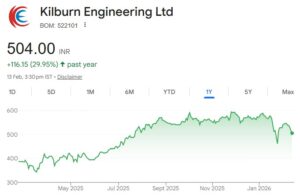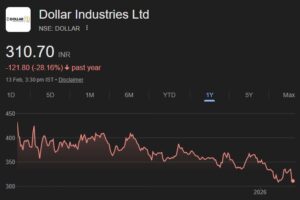
It is one of the ironies of life that Warren Buffett’s purchase of a stock is now seen as a “demotion” of the stock from a “growth” status to a “mature” status.
Apple Inc, the electronics powerhouse with a market capitalisation of $536 Billion, has suffered this ignominy.
NYT pointed out that Warren Buffett’s purchase of Apple stock had made the Company, a hitherto “glamorous high-flying” and “quintessential growth stock” into a “dowdy value stock” which is “undervalued” because it is not fancied by investors.
The fact that Carl Icahn, who was earlier a champion of the stock, had exited Apple a few days before Warren Buffett’s entry, underlines the differences in investing styles of the two Billionaire investors. While one prefers “rapid growth”, the other prefers “safety of capital”.
It is notable that Carl Icahn has compounded his wealth at an impressive CAGR of 31% since the year 1968 while Warren Buffett has compounded his wealth at a relatively modest CAGR of 19.5% in the same period.
“The very fact that Warren Buffett is buying Apple indicates that Apple’s best days are behind it” Aswath Damodaran, an authority on value investing, said.
He added “I shudder to say this but maybe Apple is going to start looking like IBM, a declining, liquidating company“.
Damodaran also predicted that the “If there is a silver lining, it is that Buffett’s followers, with their large numbers and unquestioning (loyalty), will imitate him and perhaps get the price gap to close.”
The wizards at PPFAS Mutual Fund are known to be die-hard followers of Warren Buffett. It is understandable that they are also charmed by Apple. In May 2016, PPFAS MF has invested Rs. 1.21 crore and bought 1800 shares of Apple Inc.
PPFAS hastened to clarify that “The announcement from Berkshire that they own a stake had nothing to do with our purchase. In fact their announcement was a hinderance to our purchase as the stock price moved up.”
The surprising part is that PPFAS does not appear to be completely convinced about Apple’s prospects.
First, it emphasized that the position in Apple is insignificant (0.18% of the AUM). Then, it highlighted the various problems with the stock:
“(i) This is a company which will find it difficult to grow. Smartphone sales are slowing and we may be approaching maturity in terms of product features. The annual or bi-annual replacement cycle may be longer in the future. In fact it is possible that there could be some de-growth for the company from slowing iPhone sales.
(ii) Historically, electronic devices companies have had a tough time staying on top.
(iii) There is some risk of capital mis-allocation in terms of trying to get into new areas where risks are high. For example trying to build cars.”
The reasons given in support of the purchase are that “this company is not going away too soon”, that it has “iconic products and loyal fans” and “the valuations are compelling”.
The curious part is that Rajeev Thakkar, the fund manager of PPFAS MF, had earlier given a presentation on Apple in which he expressed doubts on whether Apple made a good investment.
He pointed out that Apple’s market share is “not very encouraging” in Europe and parts of South East Asia and that there is intense competition from other phone manufacturers who are selling their devices at 1/3rd the cost of an Apple I-phone.
Thakkar also warned that the Apple i-phone may not be as coveted as before. He also pointed that Apple is not showing signs of deploying its cash reserves for innovation and diversification into new viable businesses and that it is, therefore, a “wait and watch” from the point of view of investment in portfolio.
So, the logic of PPFAS MF of investing the “insignificant” amount in a stock in which its fund manager does not have full conviction is not clear.
It is also relevant to note that the total funds invested by PPFAS in foreign stocks now stands at Rs. 180 crore, being about 26% of the AUM of Rs. 670 crore. The performance of the foreign stocks on a YoY basis is as follows:
| Stock | Market Value (Rs Cr) | YoY Return (%) |
| Alphabet (Google) | 81.76 | 33.42 |
| UPS | 27.48 | 3.99 |
| Anheuser Busch Inbev SA | 7.06 | (0.8) |
| Nestle SA | 18.65 | (0.11) |
| 3M Co | 20.17 | (1.34) |
| IBM | 21.50 | (8.98) |
| Apple | 1.21 | (23.18) |
| Standard Chartered Plc | 3.03 | (50.15) |
| 180.86 |
As one can see, the performance of the foreign stocks, with the sole exception of Google, is quite dismal. One stock, Standard Chartered Plc, has lost a whopping 50% of its value. Fortunately, the other stocks are more or less flat.
This raises the age-old debate as to whether the strategy of the PPFAS Mutual Fund to invest more than 25% of its AUM in foreign stocks is sensible given that all foreigners are making a bee-line for India and pumping trillions of dollars into Indian stocks.
Parag Parikh, the late founder of PPFAS MF, replied to the debate in his typical feisty manner. “It is true that in any period which is marked by a very strong run in the Indian markets, the PLTVF would lag in performance but this is a choice we have made. We believe that over a cycle or an approximate investment horizon of more than 5 years, the benefit of having invested in international stocks would outweigh the short term under-performance” Parikh said.
Only time will tell whether the late veteran value investor was right in his hypothesis that investing in foreign stocks would prove more beneficial than investing in Indian stocks!






PPFMAS gives us a good opportunity to invest in them having an international exposure in stocks which otherwise I dont see in other funds